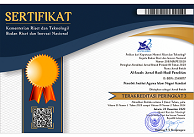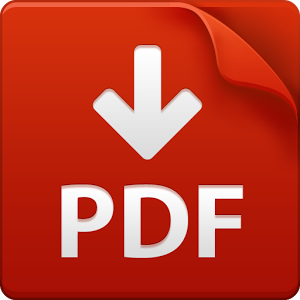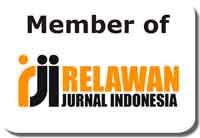Digital Pesantren: Revitalization of the Islamic Education System in the Disruptive Era
Abstract
This study aims to identify the system of Islamic education faced by the Pesantren during the period of upheaval. This study is a preliminary qualitative study aimed at analyzing various literature on the critical issues of Pesantrens during the period of disruption. The data obtained in this study were collected using documentation methods and subsequently validated using source triangulation techniques. Data analysis was conducted in three stages: data reduction, presentation, and conclusion formulation. The study revealed the following. (1) Pesantrens will activate the Islamic education system by expanding the scope of the santri through extracurricular activities according to the interests and talents of the santri. Pesantrens will focus on all areas of life (Internet of Things), big data, and artificial intelligence for information gathering and knowledge transfer. (2) The Role of Pesantrens in an era of disruption following Advances in Science and Technology. Islamic education still depends on three terms – tarbiyah, ta’lim, and ta’dib – and the use of each has many implications. The role of science and technology can be fulfilled through innovation, teaching methods and media. (3) The digital needs of a disruptive age in Pesantrens can make accessing information and knowledge easier for the santri. Changes in Islamic education will be examined, particularly the medium of instruction, teaching methods, and the Islamic curriculum in the digital age. (4) Solves the problems of the system of Islamic education in Pesantrens by adapting and restructuring it to the social requirements and challenges of the digital age based on Islamic principles. The strategies of the project are: improving Pesantrens based on values, improving the human resources of Pesantrens, improving the material and technical base of Pesantrens and the development of Pesantren curricula
Keywords
Full Text:
PDFReferences
Afrianto. “Being a Professional Teacher in the Era of Industrial Revolution 4.0: Opportunities, Challenges and Strategies for Innovative Classroom Practices.” English Language Teaching and Research 2, no. 1 (2018): 3. http://ejournal.unp.ac.id/index.php/eltar/article/view/102675.
Ahdar, and Musyarif. “Tantangan Pendidikan Islam Di Indonesia Pada Era Globalisasi.” Jurnal Pendidikan Islam 17, no. 1 (2019): 13–26.
Anisimova, Ellina Sergeevna. “Digital Literacy of Future Preschool Teachers.” Journal of Social Studies Education Research 11, no. 1 (2020): 230–53.
Anwar, Saeful. “Revolusi Industri 4.0 Islam Dalam Merespon Tantangan Teknologi Digitalisasi.” At-Tuhfah: Jurnal Studi Keislaman 8, no. 2 (2019): 16–28.
AS, A. Syafi’, and Ainun Najib. “Strategi Pembelajaran Lembaga Pendidikan Pesantren Dalam Mengahadapi Era Digitalisasi (Studi Kasus Di Pondok Pesantren Minhajut Thullab Jombang).” Sumbula 7, no. 2 (2022): 313–37.
Asari, Hasan, and Zainal Abidin. “Kitab Kuning and Training of Ulama: The Experience of Madrasah Al Qismul Ali Jalan Ismailiyah Medan.” MIQOT: Jurnal Ilmu-Ilmu Keislaman 44, no. 1 (2020): 93. https://doi.org/10.30821/miqot.v44i1.750.
Badi’ah, Siti, Luthfi Salim, and Muhammad Candra Syahputra. “Pesantren Dan Perubahan Sosial Pada Era Digital.” Analisis: Jurnal Studi Keislaman 21, no. 2 (2021): 349–64.
Baharuddin, A. “Digital Revolution and the Renewed Mechanism of Religious Discourse.” In Proceedings of the Proceedings of the 19th Annual International Conference on Islamic Studies, AICIS 2019, 1-4 October 2019, Jakarta, Indonesia. Jakarta: EAI, 2020. https://doi.org/10.4108/eai.1-10-2019.2291708.
Budiman, Septian Arief, and Fil Isnaeni. “Penyuluhan Peran Santri Dalam Menjawab Tantangan Dakwah Di Era Digital.” Jurnal Loyalitas Sosial: Journal of Community Service in Humanities and Social Sciences 1, no. 2 (2019): 104. https://doi.org/10.32493/jls.v1i2.p104-113.
Candra, Wilson, Naelati Tubastuvi, Suryo Budi Santoso, and Eko Haryanto. “Analysis of The Islamic Leadership, Islamic Work Ethics and Intellectual Intelligence on Employee Performance with Islamic Organization Culture as Moderated Variables.” Journal of Islamic Economic and Business Research 2, no. 1 (2022): 1–14. https://doi.org/10.18196/jiebr.v2i1.21.
Chanifah, Nur, Yusuf Hanafi, Choirul Mahfud, and Abu Samsudin. “Designing a Spirituality-Based Islamic Education Framework for Young Muslim Generations: A Case Study from Two Indonesian Universities.” Higher Education Pedagogies 6, no. 1 (2021): 195–211. https://doi.org/10.1080/23752696.2021.1960879.
Daradjat, Zakiah. Lmu Pendidikan Islam. Ed.1 Cet . Jakarta: Bumi Aksara, 2008.
Darwis, Mohammad. “Revitalisasi Peran Pesantren Di Era 4.0.” Dakwatuna: Jurnal Dakwah Dan Komunikasi Islam 6, no. 01 (2020): 128. https://doi.org/10.36835/dakwatuna.v6i01.509.
Djazilam, M. Syukron. “Relevansi Sistem Pendidikan Pesantren Tradisional Dalam Era Modernisasi.” Al-Insyiroh: Jurnal Studi Keislaman 5, no. 1 (2019): 89–105. https://doi.org/10.35309/alinsyiroh.v5i1.3398.
Emawati, Emawati, and Istiqamahtul Masyitah. “Ekstrakurikuler Di Pesantren Moderen: Sebuah Upaya Dalam Pembentukan Karakter Santri.” DAYAH: Journal of Islamic Education 5, no. 2 (2022): 278. https://doi.org/10.22373/jie.v5i2.13453.
Fahlevi, Mochammad, Mohamad Saparudin, Sari Maemunah, Dasih Irma, and Muhamad Ekhsan. “Cybercrime Business Digital in Indonesia.” E3S Web of Conferences 125, no. 201 9 (2019): 1–5. https://doi.org/10.1051/e3sconf/201912521001.
Fakhrurrozi, Hatta. “Pesantren Virtual: Dinamisasi Atau Disrupsi Pesantren?” Paedagogia 10, no. 1 (2021): 153–69.
Falloon, Garry. “From Digital Literacy to Digital Competence: The Teacher Digital Competency (TDC) Framework.” Educational Technology Research and Development 68, no. 5 (2020): 2449–72. https://doi.org/10.1007/s11423-020-09767-4.
Fatmawati, Dewi, and Ahmad Rifa’i. “Kurikulum Pesantren Ideal Di Era Digital.” Syntax Literate ; Jurnal Ilmiah Indonesia 6, no. 6 (June 20, 2021): 2689. https://doi.org/10.36418/syntax-literate.v6i6.3111.
Hayati, Nur Rohmah. “Peran Pesantren Menghadapi Konstelasi Era 4.0.” Islamic Review Jurnal Riset Dan Kajian Keislaman VIII, no. 2 (2019): 161–74. https://doi.org/10.35878/islamicreview.v8i2.149.
Ilyas, Mohammad, Nashrudin Baidan, and Rohmat Budi. “Exploring The Management Of Spiritual Inteliigance Development In 21 St Century : A Case Of Islamic Boarding House Of.” European Journal of Molecular & Clinical Medicine 07, no. 07 (2020): 6482–89.
Ilyasin, Mukhamad. “Transformation of Learning Management: Integrative Study of Pesantren Curriculum.” Dinamika Ilmu 20, no. 1 (2020): 13–22. https://doi.org/10.21093/di.v20i1.2006.
Irawan, Hendri, and Krisbaya Bayu Firdaus. “Resiliensi Pancasila Di Era Disrupsi: Dilematis Media Sosial Dalam Menjawab Tantangan Isu Intoleransi.” Jurnal Paris Langkis 1, no. 2 (2021): 36–47. https://e-journal.upr.ac.id/index.php/parislangkis.
Ja’far, Ali. “Literasi Digital Pesantren: Perubahan Dan Kontestasi.” Islamic Review: Jurnal Riset Dan Kajian Keislaman 8, no. 1 (2019): 17–35. https://doi.org/10.35878/islamicreview.v8i1.156.
Khaidir, Eniwati, and Fitriah M. Suud. “Islamic Education in Developing Students’ Characters At As-Shofa Islamic High School, Pekanbari Riau.” IJIEP: International Journal of Islamic Educational Psychology 1, no. 1 (2020): 50–63.
Khoeriyah, Munganatl. “Heutagogy in the Course of Pesantren Education (Case Study At Pesantren Salaf Al-Luqmaniyyah).” Sunan Kalijaga International Journal on Islamic Educational Research 3, no. 1 (2019): 66–79. https://doi.org/10.14421/skijier.2019.2019.31.07.
Kholifah, Azhar. “Strategi Pendidikan Pesantren Menjawab Tantangan Sosial Di Era Digital.” Jurnal Basicedu 6, no. 3 (2022): 4967–78. https://doi.org/10.31004/basicedu.v6i3.2811.
Kim, Kyu Tae. “The Structural Relationship among Digital Literacy, Learning Strategies, and Core Competencies among South Korean College Students.” Educational Sciences: Theory and Practice 19, no. 2 (2019): 3–21. https://doi.org/10.12738/estp.2019.2.001.
Liza, Khaira, and Erna Andriyanti. “Digital Literacy Scale of English Pre-Service Teachers and Their Perceived Readiness toward the Application of Digital Technologies.” Journal of Education and Learning (EduLearn) 14, no. 1 (2020): 74–79. https://doi.org/10.11591/edulearn.v14i1.13925.
Lundeto, Adri, Ishak Talibo, and Shinta Nento. “Challenges and Learning Strategies of Islamic Education in Pesantrens in the Industrial Revolution Era 4.0.” AL-ISHLAH: Jurnal Pendidikan 13, no. 3 (2021): 2231–40. https://doi.org/10.35445/alishlah.v13i3.1153.
Mahfudh, Adzhal Arwani, and Hery Mustofa. “Klasifikasi Pemahaman Santri Dalam Pembelajaran Kitab Kuning Menggunakan Algoritma Naive Bayes Berbasis Forward Selection.” Walisongo Journal of Information Technology 1, no. 2 (2019): 101. https://doi.org/10.21580/wjit.2019.1.2.4529.
Manan, Muhamad Abdul. “Daya Tahan Dan Eksistensi Pesantren Di Era 4.0.” Jurnal Pendidikan Islam Indonesia 3, no. 2 (2019): 301–13. https://doi.org/10.35316/jpii.v3i2.135.
Manshur, Fadlil Munawwar. “Typical Literary Works of Pesantren on Righteousness Teaching within Cultural Transformation.” Journal of Social Studies Education Research 11, no. 4 (2020): 114–48.
Marzano, Gilberto, and Andris Martinovs. “Teaching Industry 4.0.” Society Integration Education. Proceedings of the International Scientific Conference 11 (2020): 69. https://doi.org/10.17770/sie2020vol2.4833.
Mas’ud, Ali, Ah Zaki Fuad, and Ahmad Zaini. “Evolution and Orientation of Islamic Education in Indonesia and Malaysia.” Journal of Indonesian Islam 13, no. 1 (2019): 1–20. https://doi.org/10.15642/JIIS.2019.13.1.21-49.
Masfingatin, Titin, and Swasti Maharani. “Computational Thinking: Students on Proving Geometry Theorem.” International Journal of Scientific and Technology Research 8, no. 9 (2019): 2216–23.
Maskur, Abu. “Penguatan Budaya Literasi Di Pesantren.” IQ (Ilmu Al-Qur’an): Jurnal Pendidikan Islam 2, no. 01 (2019): 1–16. https://doi.org/10.37542/iq.v2i01.21.
Muluk, Safrul, Habiburrahim Habiburrahim, Teuku Zulfikar, Janice Orrell, and Mujiburrahman Mujiburrahman. “Developing Generic Skills at an Islamic Higher Education Institution Curriculum in Aceh, Indonesia.” Higher Education, Skills and Work-Based Learning 9, no. 3 (2019): 445–55. https://doi.org/10.1108/HESWBL-06-2018-0064.
Nugroho, Haryo Aji, Winarno Winarno, and Rizki Parahita Anindi. “The Implementation of Panca Jiwa In Pesantren Agro Nur El Falah Salatiga.” Indonesian Journal of Religion and Society 3, no. 1 (2021): 1–9. https://doi.org/10.36256/ijrs.v3i1.126.
Nurul Romdoni, Lisda, and Elly Malihah. “Membangun Pendidikan Karakter Santri Melalui Panca Jiwa Pondok Pesantren.” Jurnal Pendidikan Agama Islam Al-Thariqah 5, no. 2 (2020): 13–22. https://doi.org/10.25299/al-thariqah.2020.vol5(2).4808.
Pabbajah, Muhammad Taufik Hidayat, and Mustaqim Pabbajah. “Peran Pondok Pesantren Salafiyah Terhadap Revitalisasi Penidikan Islam; Studi Pada Pondok Pesantren Salafiyyah Parappe, Campalagin, Polman.” Jurnal Ilmiah Pendidikan Citra Bakti 6, no. 2 (2020): 201–10.
Putra, Pristian Hadi. “Tantangan Pendidikan Islam Dalam Menghadapi Society 5.0.” Islamika : Jurnal Ilmu-Ilmu Keislaman 19, no. 02 (2019): 99–110. https://doi.org/10.32939/islamika.v19i02.458.
Putrawangsa, Susilahudin, and Uswatun Hasanah. “Integrasi Teknologi Digital Dalam Pembelajaran Di Era Industri 4.0.” Jurnal Tatsqif 16, no. 1 (2018): 42–54. https://doi.org/10.20414/jtq.v16i1.203.
Rahmatullah, Arif, and Syamsul Hidayat. “The Urgence of Values In Islamic Education (Syed Muhammad Naquib Al-Attas Thought Study).” Tsaqafah 18, no. 1 (2022): 315–33.
Rahtikawatie, Yayan, Saifuddin Chalim, and Teti Ratnasih. “Investigating The Role of Religious Leadership at Indonesia’s Pesantrens in The Sustainability of School Management.” Eurasian Journal of Educational Research 2021, no. 96 (2021): 51–65. https://doi.org/10.14689/ejer.2021.96.4.
Rianawaty, Ida, Suyata, Siti Irene Astuti Dwiningrum, and Bagus Endri Yanto. “Model of Holistic Education-Based Boarding School: A Case Study at Senior High School.” European Journal of Educational Research 10, no. 2 (2021): 567–80. https://doi.org/10.12973/EU-JER.10.2.567.
Rindiani, Ani, Ahmad Nurwadjah, and Andewi Suhartini. “Eksistensi Dan Revitalisasi Pesantren Di Era 4.0.” Al-Wasathiyah 2, no. 1 (2022): 14–27.
Rohaeni, Anie, Iim Wasliman, Deti Rostini, and Yosal Iriantara. “Management of Noble Moral Education for Madrasah Aliyah Students at Persatuan Islam Boarding School.” Journal of Industrial Engineering & Management Research 2, no. 4 (2021): 154–71. https://www.jiemar.org/index.php/jiemar/article/view/174%0Ahttps://www.jiemar.org/index.php/jiemar/article/download/174/134.
Rosadi, Anwar, and Mohamad Erihadiana. “Reorientasi Kurikulum Dan Pembelajaran Pendidikan Agama Islam Pada Era Disrupsi Teknologi.” Quality 9, no. 2 (2021): 231. https://doi.org/10.21043/quality.v9i2.12024.
Rosli, Syahrir, Mohd Isa Hamzah, and Mohd Edyazuan Azni. “Revolusi Digital: Pengaruh Terhadap Dinamik Masyarakat Serta Kaedah Mengatasinya Dari Perspektif Islam.” QALAM; International Journal of Islamic and Humanities Research 2, no. 1 (2022): 40–53.
Samsudin. “Tantangan Lembaga Pendidikan Pesantren Di Era Disrupsi.” Conference on Islamic Studies (CoIS), 2019, 224. http://lppm-unissula.com/jurnal.unissula.ac.id/index.php/cois/article/view/8063/3655.
Samsudin, and Anis Tyas Kuncoro. “Tradisi Khidmah Dalam Perspektif Pendidikan Islam.” Jurnal Pendidikan Agama Islam Universitas Wahid Hasyim 10, no. 1 (2022): 298–317.
Septiani, Gunik. “Pengaruh Lingkungan Bagi Kecerdasan Siswa Secara Intelektual, Emosional, Sosial, Dan Spiritual.” Al Hikmah: Journal of Education 1, no. 1 (2020): 47–58. http://yphn.ac.id/ejournal/index.php/Alhikmah/index.
Sidiq, Rd Siti Sofro, Ashaluddin Jalil, R. Willya, and W. Achmad. “Virtual World Solidarity: How Social Solidarity Is Built on the Crowdfunding Platform Kitabisa.Com.” Webology 18, no. 1 (2021): 192–202. https://doi.org/10.14704/WEB/V18I1/WEB18083.
Sirait, Ferdinand Eskol Tiar. “Dampak Revolusi Industri 4.0 Pada Industri Teknologi Komunikasi Di Indonesia: Peluang Dan Tantangan.” Jurnal Penelitian Dan Pengembangan Sains Dan Humaniora Universitas Pendidikan Ganesha 6, no. 1 (2022): 132–39. https://ejournal.undiksha.ac.id/index.php/JPPSH/article/view/28153.
Solihin, Ihin, Aan Hasanah, and Hisny Fajrussalam. “Core Ethical Values of Character Education Based on Islamic Values in Pesantrens.” International Journal on Advanced Science, Education, and Religion 3, no. 2 (2020): 21–33. https://doi.org/10.33648/ijoaser.v3i2.51.
Sya’bani, Mohammad Ahyan Yusuf. “Culture of Religious Moderation Through the Actualization of Islamic Education Wasatiyyah to Improve Religious Reconnection and Tolerance in Indonesia.” Proceedings of the 1st UMGESHIC International Seminar on Health, Social Science and Humanities (UMGESHIC-ISHSSH 2020) 585 (2021): 528–36. https://doi.org/10.2991/assehr.k.211020.075.
Tarihoran, Nafan, Eva Fachriyah, Tressyalina, and Iin Ratna Sumirat. “The Impact of Social Media on the Use of Code Mixing by Generation Z.” International Journal of Interactive Mobile Technologies 16, no. 7 (2022): 54–69. https://doi.org/10.3991/ijim.v16i07.27659.
Taufik, Muhamad. “Strategic Role of Islamic Religious Education in Strengthening Character Education in the Era of Industrial Revolution 4.0.” Jurnal Ilmiah Islam Futura 20, no. 1 (2020): 86. https://doi.org/10.22373/jiif.v20i1.5797.
Thoriquttyas, Titis, and Farida Hanun. “Amplifying the Religious Moderation from Pesantren: A Sketch of Pesantren’s Experience in Kediri, East Java.” Analisa: Journal of Social Science and Religion 5, no. 02 (2020): 221–34. https://doi.org/10.18784/analisa.v5i02.1147.
Yayan Musthofa, M. Asy’ari, and Habibur Rahman. “Pembelajaran Pesantren Virtual: Fasilitas Belajar Kitab Kuning Bagi Santri Kalong.” TADRIS: Jurnal Pendidikan Islam 16, no. 1 (2021): 58–70. https://doi.org/10.19105/tjpi.v16i1.4543.
DOI: http://dx.doi.org/10.31332/ai.v0i0.5880
Copyright (c) 2023 cecep nikmatullah, Naf'an Tarihoran, Anis Fauzi

This work is licensed under a Creative Commons Attribution-NonCommercial-ShareAlike 4.0 International License.










